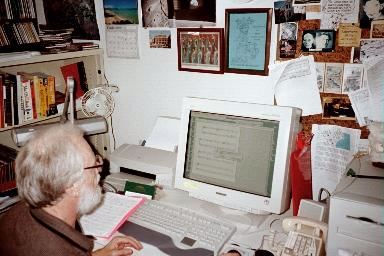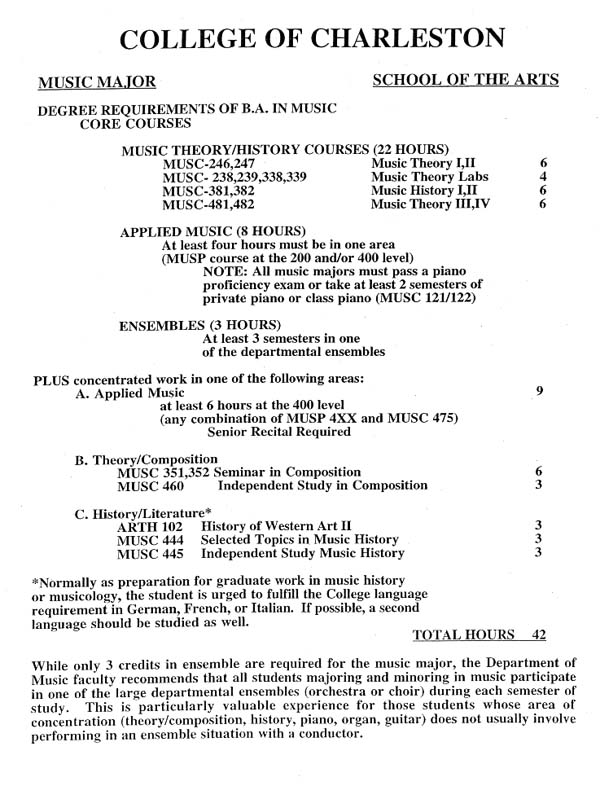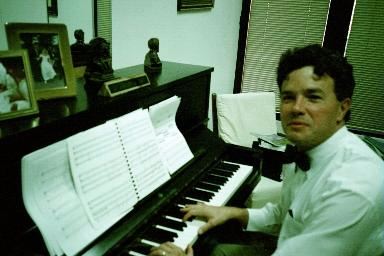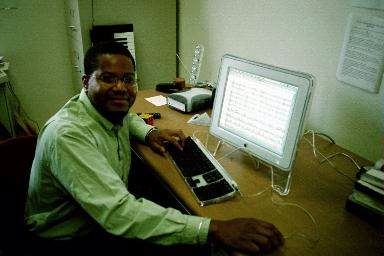 Active as Composer-in-Residence at the College of Charleston, South Carolina, for over 25 years, David W. Maves has composed over 100 works of which about half are published. A list of his compositions includes symphonies, concertos, works for symphonic band, works for chorus, an opera, Bodas de Sangre (Blood Wedding), text in Spanish by Federico García Lorca), much chamber music, some Gebrauchsmusik, and works for organ, harpsichord, and early music instruments (recorders and viols). Maves has recently received a series of grants (about $10,000) from the College of Charleston and the South Carolina Arts Commission to enable him to publish about 12 to 15 of his works on line as pdf files which will enable anyone with a letter sized printer to download performable versions of these works--including works for piano, organ, guitar and teaching pieces for children. He was born in 1937 in Salem, Oregon and studied with Homer Keller at the University of Oregon (B.M. 196l), Ross Lee Finney and Leslie Bassett at the University of Michigan in Ann Arbor (D.M.A. 1971). In 1964 he was appointed Ford Foundation Composer-in-Residence in Raleigh, NC, and since has received various other awards including several ASCAP awards, and two Sigma Alpha Iota Inter American Awards. For more complete information: https://www.cofc.edu/~mavesweb |
|
Edward Hart is a native of Charleston, South Carolina. After studying composition with David Maves and completing a BA at the College of Charleston, Hart went on to receive a Masters and Doctorate in composition from the University of South Carolina. While in Columbia, he was named Composer in Residence of the Carolina Amadeus Chamber Orchestra leading to a performance of his first symphony.Hart is a cofounder and musical director of The Lowcountry Heritage Society, an arts organization dedicated to the production of new works of art, music, and literature about or inspired by the South Carolina Lowcountry. Since its inception the group has produced over forty new musical works by eleven composers, two modern dance works, a ballet, two literary anthologies, an original play, and ten art exhibits.Hart's music has been performed nationally including a 1995 performance at the Kennedy Center in Washington, D.C. He has been awarded many commissions and in 1998 won the South Carolina Music Teachers Association prize in composition. Hart has written music for the Charleston Symphony Orchestra, the South Carolina Philharmonic Orchestra, the University of South Carolina Symphony Orchestra, the Carolina Amadeus Players Chamber Orchestra, the Upton Trio, the City of Charleston, Anonymity Dance Company, Piccolo Spoleto, and the Robert Ivey Ballet. He is an Assistant Professor of Music at the College of Charleston. |
|
Trevor Weston is an Assistant Professor of Music at the College of Charleston. His musical training began as a choirboy at St. Thomas Choir School in New York City and continued with organ and carillon lessons in high school. He attended Tufts University where he studied composition with T. J. Anderson and completed a double major in Music and History. At the University of California, Berkeley, Trevor Weston completed his Ph. D. studying with Richard Felciano, Andrew Imbrie and his primary teacher, Olly Wilson. Trevor Weston's honors include the George Ladd Prix de Paris, which funded two years of study in Paris, and a reading by the Detroit Symphony in 1998 of his orchestral piece, Bleue. |
First Year:
Theory Labs MUSC 238, 239
Second Year:
Music History I, II MUSC 381, 382
Theory Labs MUSC 338, 339
Independent Study in Composition: MUSC 460 (If at all possible, students should try to take an additional semester of Independent Study in Composition. This allows for two full years of private study alternating among the three composition professors at the College of Charleston and encouraging a diversity of approaches and understanding which we consider most valuable for the development of the craft of musical composition.)
Theory III, IV MUSC 481, 482
Any Time:
Applied Music (8 hours):
Ensembles (3 hours):
"Doubling Up":
Occasionally a student will decide rather late in his/her career here to become a composition major. By special permission of the instructors involved, he/she may take some of the courses out of sequence in order to graduate without having to take an extra year of courses. This has proven barely successful; i.e. students do get the courses completed, but are "cheated" out of a more leisurely process through the program wherein they may more completely absorb and learn to apply the craft of musical composition.
At least four semesters in one area of MUSP 2xx and/or MUSP 4xx (study of an instrument or voice).


